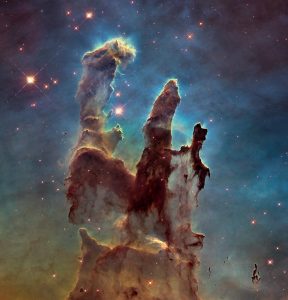
Shownotes
Wisdom-Trek / Creating a Legacy
Welcome to Day 811 of our Wisdom-Trek, and thank you for joining me.
I am Guthrie Chamberlain, Your Guide to Wisdom
The Ancient’s Guide to the Galaxy – Wisdom Wednesday

Thank you for joining us for our five days per week wisdom and legacy building podcast. Today is Day 811 of our trek, and it is Wisdom Wednesday. The past several weeks on Wednesdays, we have been focusing on interpreting current events through a Biblical worldview.
To establish a Biblical worldview, it is important that you also have a proper understanding of God’s Word. Especially in our western cultures, we do not fully understand the Scriptures from the mindset and culture of the authors. In order to help us all have a better understanding of God’s word, I would like to invest the next several weeks reviewing a series of essays from one of today’s most prominent Hebrew scholars Dr. Micheal S. Heiser, which have been compiled into a book titled I Dare You Not to Bore Me with the Bible.
We are broadcasting from our studio at The Big House in Marietta, Ohio. Although we are technically still in winter as I am creating this podcast, there are signs of spring in the air with the daffodils sprouting and birds making their nests in preparation of raising a new family for this year.
Spring is always a time for renewal, a time of new beginnings. As we explore God’s Word from a new perspective, that is the perspective of an Old Testament Israelite, allow it to be a time of growth in your spiritual life, a time of renewal.
So our essay for today is titled…
The Ancient’s Guide to the Galaxy
God chose a specific time, place, and culture to inspire people to produce what we read in the Old Testament: the ancient Mediterranean and the ancient Near East of the second and first millennia BC. Understanding the worldview of this culture can lead to more faithful understandings of Scripture on our part, especially when it comes to an understanding of how the Israelites viewed God and the universe.
· Old Testament Cosmology
“Cosmology” refers to the way we understand the structure of the universe. The biblical writers’ conception of how the heavens and earth were structured by God represents a particular cosmology.
The Israelites believed in a universe that was common among the ancient civilizations of the Biblical world. It encompassed three parts: a heavenly realm, an earthly realm for humans, and an underworld for the dead. These three tiers are reflected in the Ten Commandments: “You must not make for yourself an idol of any kind or an image of anything in the heavens or on the earth or in the sea,” Exodus 20:4.

· The Heavens
We find an Israelite understanding of the heavens in Genesis 1:6-8, which describes it as an expanse, with waters above and below, “Then God said, ‘Let there be a space between the waters, to separate the waters of the heavens from the waters of the earth.’ And that is what happened. God made this space to separate the waters of the earth from the waters of the heavens. God called the space ‘sky.'”
The sky, thought to be a solid firmament, separated the waters above from the waters below as is described by Lady Wisdom in Proverbs [8:27]-28:
I was there when he established the heavens,
when he drew the horizon on the oceans.
I was there when he set the clouds above,
when he established springs deep in the earth.
The firmament dome surrounded the earth, with its edge meeting at the horizon as we read in Job 26:10, “He created the horizon when he separated the waters; he set the boundary between day and night.” It was supported by “pillars” or “foundations,” thought to be the tops of mountains, whose peaks appeared to touch the sky. The heavens had doors and windows through which rain or the waters above could flow upon the earth from their storehouses Psalms 78:23, “But he commanded the skies to open; he opened the doors of heaven.” Psalms 33:7 says, “He assigned the sea its boundaries and locked the oceans in vast reservoirs.”
God was thought to dwell above the firmament, as described in Job 22:14, “For thick clouds swirl about him, and he cannot see us. He is way up there, walking on the vault of heaven.”
· The Earth
The earth sat upon the watery deep. The “waters below” speak not only to waters that people use but also the deeper abyss. Thus, the earth was surrounded by the seas Genesis 1:9-10, “Then God said, ‘Let the waters beneath the sky flow together into one place, so dry ground may appear.’ And that is what happened. God called the dry ground ‘land’ and the waters ‘seas.’ And God saw that it was good.”
The ancients thought the earth had arisen out of the water as 2 Peter 3:5 tells us, “They deliberately forget that God made the heavens long ago by the word of his command, and he brought the earth out from the water and surrounded it with water.” The earth was thought to be held fast by foundations Psalms 104:5, “You placed the world on its foundation so it would never be moved.”
· The Underworld
The realm of the dead was located under the earth, or even beneath the seas. The most frequent term for this place was sheol. Proverbs 9:18 says, “But little do they know that the dead are there. Her guests are in the depths of the grave (sheol).”
The word for “earth” is also used—the graves dug by humans represented gateways to the Underworld. In Job, the realm of the dead is described in watery terms found in Job 26:5-6, “The dead tremble, those who live beneath the waters. The underworld is naked in God’s presence. The place of destruction is uncovered.” Jonah’s description of sheol is perhaps the most vivid. Though in the belly of the great fish, Jonah says he is in the Underworld in Jonah 2:5-6, “I sank beneath the waves, and the waters closed over me. Seaweed wrapped itself around my head. I sank down to the very roots of the mountains. I was imprisoned in the earth, whose gates lock shut forever. But you, O Lord my God, snatched me from the jaws of death!”
Becoming familiar with the ancient Near Eastern worldview can help us interpret the Old Testament. By understanding the Israelites’ concept of cosmology, we have a better idea of their perceptions of God. Next Wisdom Wednesday we will learn how to Walk Like an Israelite.
Tomorrow we will continue with our 3-minute wisdom nugget that will provide you with a bit of wisdom that, if followed will allow you to grow healthier, wealthier, and wiser each day. So encourage your friends and family to join us and then come along with us tomorrow for another day of our Wisdom-Trek, Creating a Legacy.

That will finish our trek for today. If you would like to listen to any of our past 810 treks or read the Wisdom Journal, they are available at Wisdom-Trek.com. You can also subscribe to iTunes or Google Play so that each day’s trek will be downloaded automatically.
Thank you for allowing me to be your guide, mentor, and most of all your friend as I serve you through the Wisdom-Trek podcast and journal.
As we take this trek together, let us always:
- Live Abundantly (Fully)
- Love Unconditionally
- Listen Intentionally
- Learn Continuously
- Lend to others Generously
- Lead with Integrity
- Leave a Living Legacy Each Day
I am Guthrie Chamberlain reminding you to Keep Moving Forward, Enjoy Your Journey, and Create a Great Day Everyday! See you tomorrow!